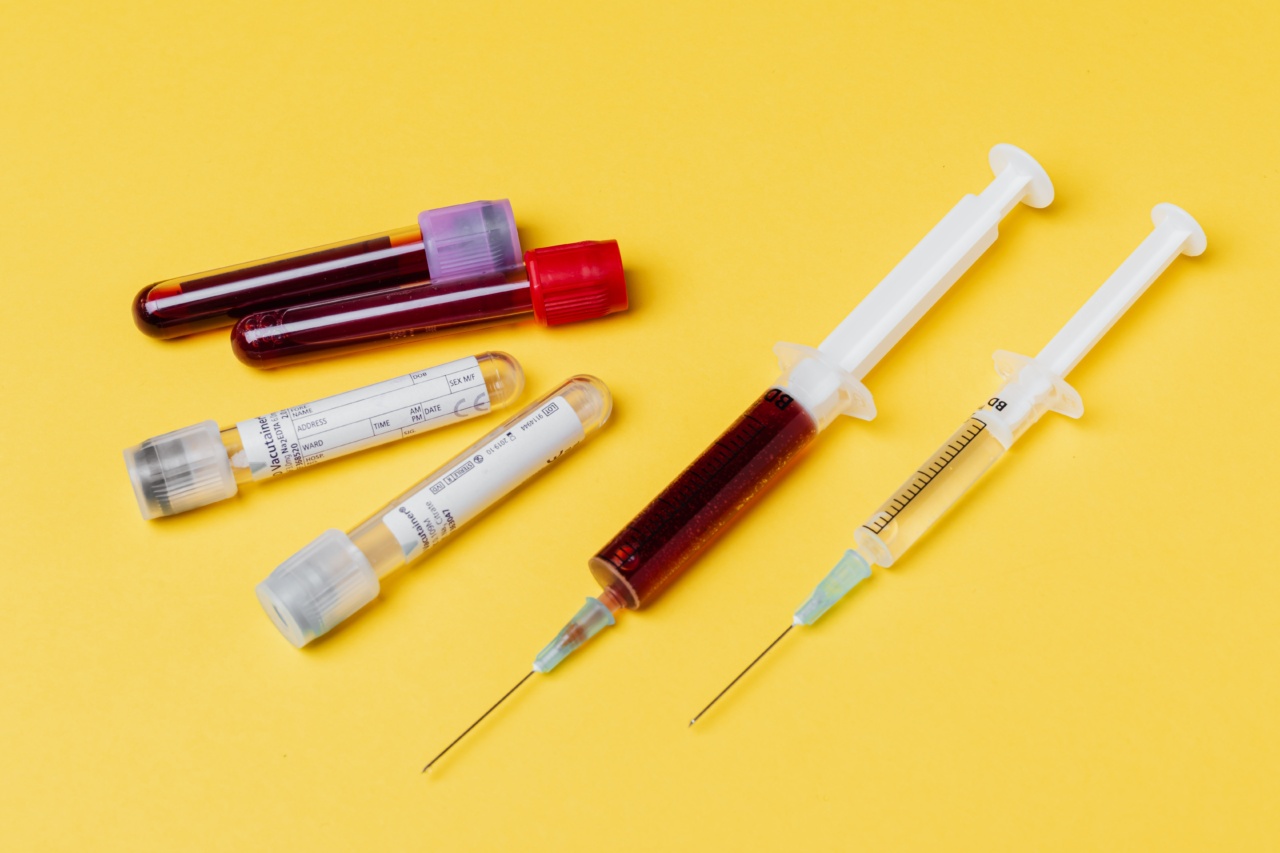High blood pressure, also known as hypertension, is a common health condition that affects millions of people worldwide.
It is often referred to as the “silent killer” because it does not present any significant symptoms until it reaches an advanced stage. High blood pressure can cause damage to various organs in the body, including the heart, kidneys, and brain. It increases the risk of heart disease, stroke, and other complications, making it vital to control it effectively.
The Link between Medications and High Blood Pressure
There are many factors that contribute to high blood pressure, including genetics, obesity, smoking, stress, and an unhealthy diet. However, another critical factor that often goes unnoticed is medication.
Certain prescription drugs can cause high blood pressure as a side effect. These include:.
- Nonsteroidal anti-inflammatory drugs (NSAIDs)
- Decongestants
- Birth control pills
- Corticosteroids
- Antidepressants
- Stimulants
- Immunosuppressant drugs
In some cases, the medication can cause a temporary increase in blood pressure, while in others, it may lead to chronic hypertension. For example, NSAIDs are medications that are commonly used to relieve pain, inflammation, and fever.
While they are generally safe, prolonged use can cause high blood pressure because they disrupt the balance of hormones that regulate blood flow in the body. Similarly, decongestants, such as pseudoephedrine and phenylephrine, can increase blood pressure by constricting blood vessels.
What to Do if Your Medication is Causing High Blood Pressure
If you are taking medication that is causing high blood pressure, it is important to talk to your doctor as soon as possible. Do not stop taking the medication without consulting your healthcare provider, as this can lead to more severe health problems.
Your doctor may recommend adjusting the dosage, switching to a different medication, or combining it with other drugs to control your blood pressure effectively.
It is also essential to monitor your blood pressure regularly and follow a healthy lifestyle to reduce the risk of complications. This includes:.
- Eating a well-balanced diet that is low in sodium and high in fruits and vegetables
- Exercising regularly, at least 30 minutes a day, five times a week
- Avoiding smoking and excessive alcohol consumption
- Managing stress by practicing relaxation techniques, such as meditation or yoga
In some cases, lifestyle modifications and medication may not be enough to control high blood pressure.
Your doctor may advise additional treatments, such as surgery or device implants, to help lower your blood pressure and reduce the risk of complications.
Conclusion
Medication-induced high blood pressure is a common problem that many people face. If you are taking medication and experiencing symptoms of hypertension, it is important to seek medical attention and follow your doctor’s advice.
By managing your blood pressure effectively, you can reduce the risk of complications and lead a healthy, fulfilling life.





























